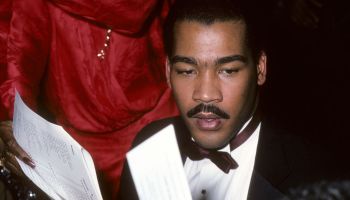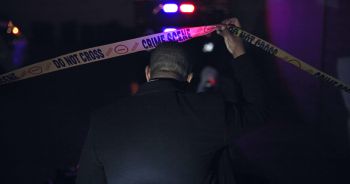
Source: Courier Journal / Handout
Breonna Taylor
A grand jury has decided to indict 1 officer involved in the shooting death of Breonna Taylor, more than six months after the EMT was shot to death by Lousiville police officers in her home. The case has sparked global attention as numerous calls have been made to Kentucky Attorney General Daniel Cameron to charge the officers.
Officer Brett Hankerson, who was dismissed by the Louisville Police Department earlier this year, was indicted on three counts of 1st degree wanton endangerment. Bond has been set at $15,000 full cash and a warrant has been issued for his arrest.
If convicted, Hankerson faces up to 5 years in prison.
What Is Wanton Endangerment?
It is defined by the Kentucky Government legislature that wanton endangerment, is circumstances manifesting extreme indifference to the value of human life. A person wantonly engages in conduct which creates a substantial danger of death or serious physical injury to another person.
If one is found guilty of wanton endangerment, he/she could be subject to up to $10,000 in fines and/or serve up to five years in prison.
Rashard Brooks
Garrett Rolfe, the former Atlanta police officer who fatally shot Rayshard Brooks on June 12 outside of a Wendy’s, has been charged with 11 counts including felony murder, aggravated assault, criminal damage to property and violations of his oath of office.. If convicted, Rolfe faces either life in prison or the death penalty.
The announcement came from Fulton County DA Paul Howard on Wednesday (June 17).
Rolfe along with former officer Devin Bronsan engaged Brooks for 41 minutes and 17 seconds that night outside the Wendy’s on University Ave. According to DA Howard, not once did they inform Brooks that he was under arrest and the 27-year-old was cooperative with them throughout.
Bronsan, according to DA Howard agreed to become a state witness. He’s being charged with three counts of aggravated assault, including an assault charge for standing on top of Brooks’ shoulders as he lay dying. The officers, who are required by law to render aid to a shooting victim, did not give aid to Brooks for two minutes and twelve seconds as he fought for his life.
“During that 2 minutes and 12 seconds, Officer Rolfe actually kicked Mr. Brooks as he laid on the ground, while he was there fighting for his life,” Howard said. “Officer Brosnan actually stood on Mr. Brooks shoulder.”
What is the difference between the different murder charges?
After watching the news you might see someone getting charged with murder. Hence, why you are even on the internet right now searching around for some answers. Whether that criminal was charged with First, Second, or Third degree you might’ve asked yourself, which one is the worst murder charge?
CLICK HERE TO LISTEN TO RNB PHILLY
Check the definition of each murder charge below.
First-Degree Murder
First Degree Murder: According to Quora First degree murder is an unlawful killing with some amount of premeditation and planning. Some crimes that would classify as the first degree is,
First-degree murder is the most serious of all homicide charges as there was intent behind the killing.
Second-Degree Murder
Second Degree Murder: This is a murder that is labeled as intentional murder. Second Degree is when the killer lacked any premeditation and his/her intent was just to cause bodily harm.
Third-Degree Murder
Third Degree Murder: The unlawful killing of a human being, when perpetrated without any design to effect death, by a person engaged in the perpetration of, or in the attempt to perpetrate, any felony other than” nineteen enumerated categories of felonies. Third-degree murder is only in three states which are Florida, Minnesota, and Pennsylvania.
RELATED: Officer Charged With Felony Murder In The Death Of Rayshard Brooks













